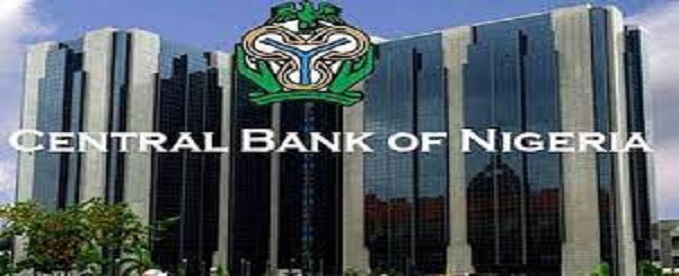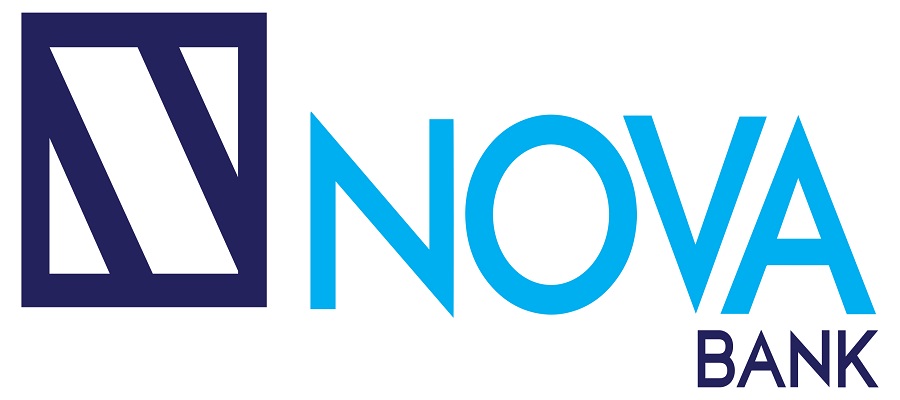E-Financial
Access Bank Dangles Collateral-Free Loan to SMEs, Others

Access Bank has unveiled a fresh audacious plan to fund the small and medium scale enterprises (SMEs) as well as health and education sectors after a similar exercise for the players in the creative sector of the economy.
The bank, which had granted over N37 billion loans to SMEs in 2018, said the decision to once again stress its hands towards these sectors was borne out of a desire to help the sectors grow.
Speaking to financial journalists in Lagos, Ayodele Olojede, head, Emerging Businesses, Access Bank, said that the bank in the last three years has invested significantly towards the growth of SMEs.
“We love SMEs and we do not pay lip service to SMEs and to the extent of how much we want to support SMEs, we have invested significantly in our understanding of the risk factors in that segment and sufficiently so because in the last 3 years, we have supported SMEs. In 2018 alone, we granted up to N37bn in loans to our SME customers which won us the award globally.
“We were able to achieve this feat because we introduced an innovative approach to lending and you know that with this innovative approach to lending, all that the customer need to be able to access loans is just to keep good credit record and sales record,” she explained.
Olojede noted that the loan portfolio is collateral free for Nigerians and added that Access Bank is the only bank currently using the National Collateral Registry in support of MSMEs.
“All of our solutions are tailored to what a client requires. If it was an equipment purchase or you just want to expand your business, we will be able to support you in that line. For school, if you want to buy books, school uniforms which are technical base requirements.”
“30 per cent of what we have granted to SMEs were used to support women through our W-power initiative and what we have done with the initiative is if you own 50 per cent of your business, you can get the loan at 15 per cent per annum.
Olojede revealed that the bank have begun to expand its footprints in the Health, Education and Technology sector while adding that through its partnership with Medical Credit fund, Access Bank granted about N3 million without collateral.
She said: “For Education, we give loans of up to N10 million without collateral specifically for working capital purposes and we are also expanding our footprints in technology sector as well and even the re-introduced creative sector loan, we are currently on the fore front of pushing that and we are about the only bank to have submitted application to Central Bank of Nigeria (CBN)
“We engaged over 11,000 customers and so far we have done about 12,000 and the target for the year is to engage about 30,000 MSMEs customers helping them with their finances, business practices and to help them understand how they can sell their products and support them with loans”.
Access Bank has unveiled a fresh audacious plan to fund the small and medium scale enterprises (SMEs) as well as health and education sectors after a similar exercise for the players in the creative sector of the economy.
The bank, which had granted over N37 billion loans to SMEs in 2018, said the decision to once again stress its hands towards these sectors was borne out of a desire to help the sectors grow.
E-Financial
CBN Fines 9 Banks N1.3Bn over Cash Scarcity @ ATMs

Central Bank of Nigeria (CBN) has sanctioned nine deposit money banks (DMBs) for failing to ensure cash availability via automated teller machines (ATMs) during the festive season.

The banks have been fined a total of N1.35 billion for their non-compliance.
Each of the banks received a fine of N150 million.
The affected banks are Fidelity Bank, First Bank, Keystone Bank, Union Bank, and Globus Bank.
Others include Providus Bank, Zenith Bank, United Bank for Africa (UBA), and Sterling Bank.
A press release issued on Tuesday by Mrs Hakama Sidi Ali, acting director of Corporate Communications at the CBN, said, “In a clear message of zero tolerance for cash flow disruptions, the Central Bank of Nigeria has sanctioned Deposit Money Banks for failing to make Naira notes available through automated teller machines, during the yuletide season.
“Each bank was fined N150m for non-compliance, in line with the CBN’s cash distribution guidelines, following spot checks on their branches. The enforcement action follows repeated warnings from the CBN to financial institutions to guarantee seamless cash availability, particularly during periods of high demand.
“The affected banks include Fidelity Bank Plc, First Bank Plc, Keystone Bank Plc, Union Bank Plc, Globus Bank Plc, Providus Bank Plc, Zenith Bank Plc, United Bank for Africa Plc, and Sterling Bank Plc.”
E-Financial
Nova Bank Urges Court to Wind Up Sunrise Products over $2.58m Debt

Nova Bank has asked the Federal High Court in Lagos to wind up Sunrise Products Limited due to its alleged failure to pay back an outstanding debt of $2,587,891.21N276,567,150.63 allegedly owed to the bank.

The bank applied in a winding-up petition, claiming Sunrise Products Limited is bankrupt.
Despite repeated demands and the statutory three-week notice required under the Companies and Allied Matters Act (CAMA), the alleged debtor has failed to settle the outstanding debt.
The petition was filed before the Court on December 19, 2024, by Kemi Balogun (SAN), the bank’s lawyer, under case number FHC/L/CP/2357/24
In the petition, Nova Bank seeks the court’s permission to publish the winding-up notice in the Federal Government Official Gazette, a national daily newspaper, and other local publications distributed in Lagos State, where the company is registered.
The petitioner has also informed the court of a significant risk that Sunrise Products Limited may dissipate or dispose of its assets, potentially undermining any favourable judgment for the bank.
To address this concern, the bank filed a motion to protect the debtor’s assets by including the Central Securities Clearing System (CSCS) Plc and 21 other banks as respondents.
Therefore, the petitioner urges the court to order the Deputy Chief Registrar of the Federal High Court, Lagos, to be appointed provisional liquidator to oversee the company’s affairs until the winding-up order is granted.
The bank also asks the court for an interlocutory injunction to prevent the respondent, its directors, staff, and agents from withdrawing or tampering with the company’s funds in the listed banks.
The bank applied in a winding-up petition, claiming Sunrise Products Limited is bankrupt. Despite repeated demands and the statutory three-week notice required under the Companies and Allied Matters Act (CAMA), the alleged debtor has failed to settle the outstanding debt.
The petition was filed before the Court on December 19, 2024, by the bank’s lawyer, Kemi Balogun (SAN), under case number FHC/L/CP/2357/24
In the petition, Nova Bank seeks the court’s permission to publish the winding-up notice in the Federal Government Official Gazette, a national daily newspaper, and other local publications distributed in Lagos State, where the company is registered.
The petitioner has also informed the court of a significant risk that Sunrise Products Limited may dissipate or dispose of its assets, potentially undermining any favourable judgment for the bank.
To address this concern, the bank filed a motion to protect the debtor’s assets by including the Central Securities Clearing System (CSCS) Plc and 21 other banks as respondents.
Therefore, the petitioner urges the court to order the Deputy Chief Registrar of the Federal High Court, Lagos, to be appointed provisional liquidator to oversee the company’s affairs until the winding-up order is granted.
The bank also asks the court for an interlocutory injunction to prevent the respondent, its directors, staff, and agents from withdrawing or tampering with the company’s funds in the listed banks.
E-Financial
NGX Warns Public of Fraudulent Impersonation by ‘Value Gain’

Nigerian Exchange Limited (NGX) has issued a stern warning against fraudulent activities, following reports of an individual and entity masquerading as affiliates of the Exchange.

In a strongly worded statement posted via its verified official X handle on Monday, the Nigerian Exchange Limited (NGX) cautioned the public about the actions of an alleged impersonator, ‘Professor Adebayo Oluwatokun,’ and a purported organization, ‘Value Gain,’ who are reportedly exploiting the trust of investors by falsely claiming affiliation with the NGX.
The pair are said to be operating a deceptive WhatsApp group, “NGX GroupA7,” designed to mislead and manipulate unsuspecting individuals.
NGX unequivocally clarified that neither ‘Professor Adebayo Oluwatokun’ nor ‘Value Gain’ has any association with the Exchange or its subsidiaries, nor are they registered Trading License Holders.
In a statement, NGX emphasized that all claims or communications originating from these individuals or entities are fraudulent, and the public is strongly urged to refrain from engaging with them.
The Exchange reaffirmed its dedication to safeguarding the interests of investors and maintaining the integrity of the Nigerian capital market. NGX encouraged individuals to promptly report any suspicious activities in order to prevent further exploitation.
This advisory comes in the wake of growing concerns over the rising incidence of fraudulent activities within the Nigerian capital market, particularly those linked to stockbrokers and dealing member firms.
There has been increasing scrutiny over the lax enforcement of Know Your Client (KYC) protocols, which some believe has facilitated these infractions.

 Telecom2 days ago
Telecom2 days agoSuspected Lakurawa Terrorists Kill 3 Telcoms Workers in Kebbi

 General News2 days ago
General News2 days agoLagos State Sets Strict Deadline for 2024 Tax Returns Filing

 E-Financial2 days ago
E-Financial2 days agoBudgIT Queries Irregularities in FG’s Proposed 2025 Budget

 News2 days ago
News2 days agoSERAP Drags FG, Govs to ECOWAS Court over ‘Misuse of Cybercrimes Act’

 E-Financial2 days ago
E-Financial2 days agoNAICOM Seeks Police’s Support to Enforce Third-party Motor Insurance

 E-Business2 days ago
E-Business2 days agoLagos, NIPOST Partner to Transform e-Commerce Delivery

 E-Financial2 days ago
E-Financial2 days agoGAIM 6: Fidelity Bank Rewards 10 Customers with N10m

 News2 days ago
News2 days agoGOCOP Applauds Edo Gov for Appointing Edomaruse, SA, Int’l Development

























